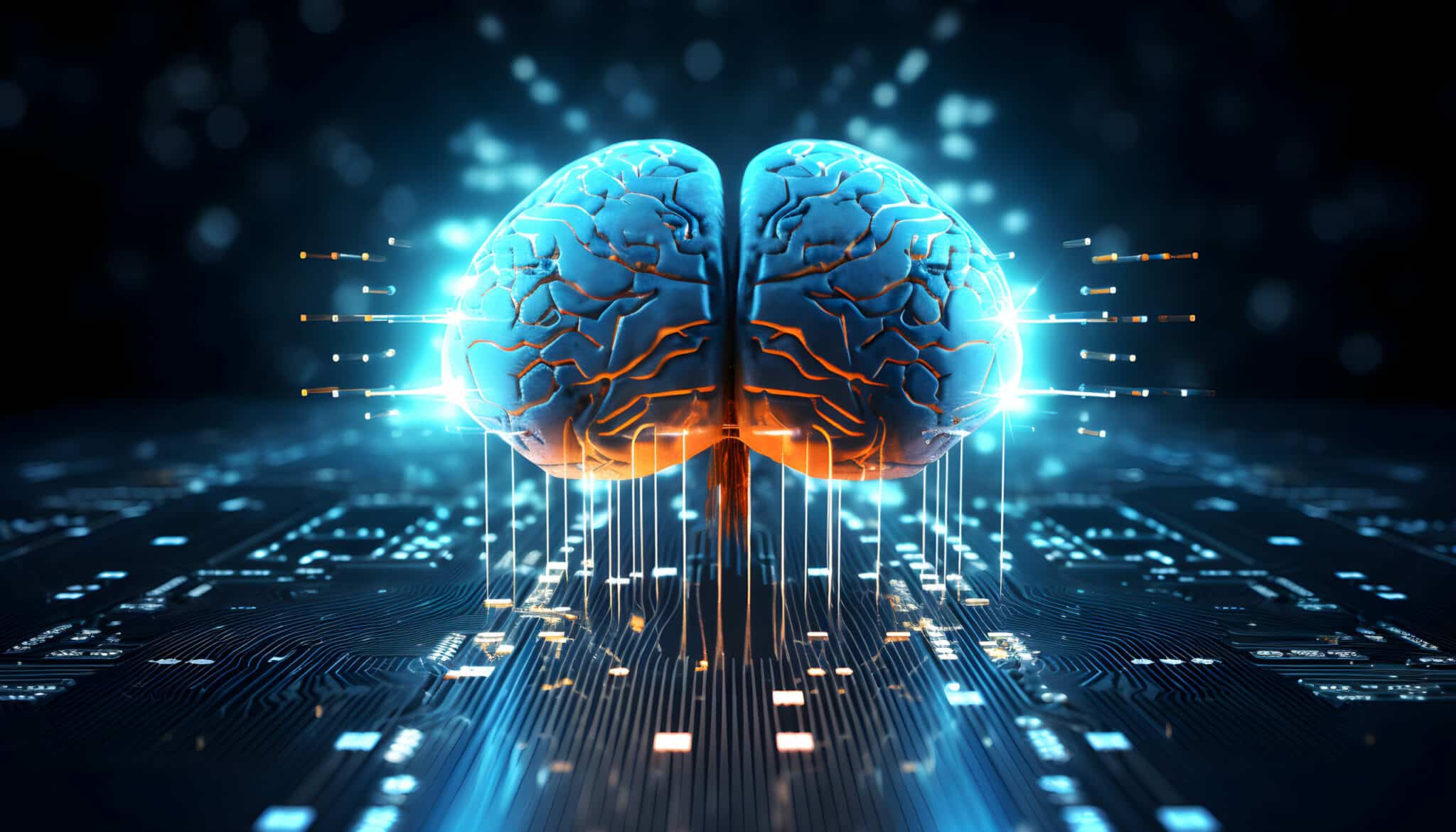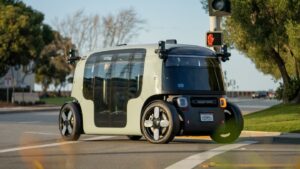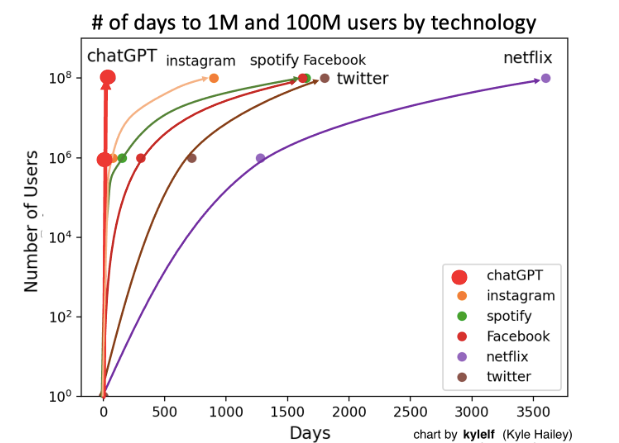
Predictive Technologies and AI in Education
AI has been around for many years now, but there has been a recent boom due to ChatGPT and its latest public releases. Its a large language model that has been trained on such a large dataset, that you can have natural language conversations with it, and receive back some meaningful data. This technology essentially takes an input, and predicts what the output would be based on the words it decides to use to begin its answer, building off itself and the past data it has ingested, its training data.

In the context of education, this is a huge deal, as it can be used for both students and teachers alike as a tool to assist with different things, like creating lesson plans, providing privatized tutoring, or helping explain different topics. In my experience as a Computer Science major, it also plays a big role in lots of different job markets. I recently did a Co-op at an autonomous robotaxi company (Zoox), which worked on self-driving cars that built upon some different AI concepts to provide safe transportation options. This provided me firsthand insights into the challenges and opportunities AI can introduce, and there are many valuable lessons I learned that can be applied to education.
- Practical application of AI, seeing how it can be used and applied to real-world problems
- Collaboration skills, education looks as if it would benefit more in the future to this collaborative work, utilizing AI to assist us in doing so
- Ethical awareness, this co-op and the safety-critical ideas behind it also highlighted the ethics behind AI in general that should also be considered in education
- Adaptability, theres never a point where we can be complacent with things, the internet challenged educators/students and allowed us to grow from it, so we can do the same with AI
Benefits of AI in Education
In education, I think its important to recognize that AI has been around for assisting us for far longer than some of us realize, but its latest form is daunting as it challenges our current education plans. I think we’ve been put in a position in which we must utilize this technology to the best of its ability to be more creative individuals and support our learning. For example, as a developer, I use these tools to quickly fix small code issues and provide templates for getting things up and running. This elimintates time wastage, whilst also giving me opportunity to see how I can better create code. It also gives me more time to put thought into the design and creativity aspects of an application rather than the simple things.
There is also the benefit that AI provides to students to enhance learning through providing personalized tutoring, I really loved this resource that my professor shared, a TedTalk on Kahn Academys AI, https://www.khanmigo.ai/
This video gives a great explanation of how AI can enhance learning. It takes time and pressure of teaching staff to work directly in kids when they’re already being pushed at lower salaries to give one on one help to larger and larger classrooms. It also enhances the learners ability to take advantage of the resources provided and have stronger takeaways for their own learning.
Challenges of AI in Education
Some of the biggest challenges that will be faced are with deciding how to draw the line, and ensure students aren’t using these tools to do all their work for them. The root of this problem that I
see is the misalignment with real-world skills that are trying to be taught from what is already taught. This article gives a great overview into this: https://www.wiley.com/en-us/network/education/instructors/teaching-strategies/is-student-cheating-on-the-rise-how-you-can-discourage-it-in-your-classroom I really like what is said about how students express this concern over the disconnect of what they learn and what skills they’ll need in the real world. Especially now given that AI is available for all workers in the industry, I think its important to enable and teach students how to use and take advantage of this technology, having projects and assignments with guidelines on proper AI usage.
There are some key issues for adoption of AI in university settings. As of now, ChatGPT is freely open to use, but their roadmap of growth could include pricing options for even the most basic usage, so there should be talks and communications within schools and companies to ensure there are options to use this technology. Within the context of this course, I think having this freely available is great, given we aim to provide open and distributed learning. However, it still doesn’t consider those who may lack access to technology and means to access these tools.
Ethical Considerations of AI in Education
There are huge data privacy concerns with using something like ChatGPT. The very nature of these AI tools are using datasets to train their models on, such that in using them, you are often volunteering your own data into these toolings. Alongside this, there are concerns for biases, heres a great video on how these may be introduced:
Here, we see the datasets its trained on were flawed and unrepresentative, and has lead to racist, biased models. It is crucial that these are taken into account such that the end tools used by educators and students are equitable and ethical.
Future Directions in EdTech
Linking with the ethical considerations, I have some personal insight for ways to combat the issue of data privacy concerns. I know its possible to train your own models based on your companies codebase for example, and host an internal version of the AI models to suit your needs in a secure way. I think there’s a great opportunity for a business venture here, in providing safe and secure AI models as a service to other businesses. In the context of education, I think this is something that should be looked at such that educators and institutions can ensure the students’ data is secure and they can train models on very specific internal papers and resources they may have.
I think in the future we will have less reliance on testable material in the sense that you won’t often need to go through each course and complete 5 midterms a semester. I forsee a shift toward more practical examinations in which students can better convey their learning, potentially through a physical demonstration of something, or via AI tool assisted outcomes that are presented for evaluation, such that students can best convey how they understand how to best act upon the material and questions they’re working toward in both an academic and career setting.
Conclusion
Whats left to acknowledge is the fact that AI is here to stay, challenge us, and help us grow in education and elsewhere. I really love this chart to show the sheer scale of how big of an impression ChatGPT has made, up to other technologies we are all familiar with:

This highlights and reaffirms that AI is groundbreaking technology that we must adapt to utilize. I am left to wonder and ask back to you, the reader, how do we ensure we leverage these technologies, while also esnuring students are learning the fundamentals to build up a stronger understanding of more advanced topics, such that they can best utilize these technologies?

